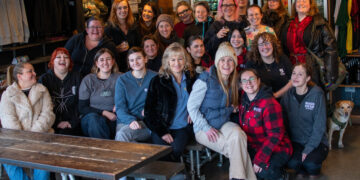A TEAM of researchers has revealed kitchen drains are home to a surprising number of fungal organisms.
Five undergraduate students and one PhD student at the University of Reading tested over 250 restroom sinks for fungi such as black moulds and baker’s yeast variants.
Each of the sinks had a very similar community of yeasts and moulds, showing that public basins share a role as reservoirs of fungal organisms.
Dr Soon Gweon, who led the project, said: “We spend 90 percent of our time indoors so we are exposed to fungi in our homes and workplaces. For most people, this isn’t a problem, but for those who are immunocompromised, certain fungal species can cause serious infections.
“It isn’t a big surprise to find fungi in a warm, wet environment. But sinks and P-traps have thus far been overlooked as potential reservoirs of these microorganisms.
“This could be a really important finding for those who are trying to help immunocompromised people avoid infections by some of the opportunistic pathogens that may be lurking in sinks, such as Fusarium.”
The technique used by the students to identify the broader families of organisms represented, with further studies detailing exact species and singling out disease-causing fungi.
Zoe Withey, the PhD student involved in the project, said: “It has been great to give undergraduate students a real-life hands-on experience of environmental microbiology. The fact that we found interesting results, worthy of a peer-reviewed publication, is an experience that many students won’t have until their PhD studies, or beyond.”
The types of fungi that live in sinks can tolerate high temperatures, low pH and low nutrients. Some even use detergents, found in sap, as a source of carbon-rich food.
There was no difference observed between male and female restrooms. In fact the 250 sinks tested, all had a very similar population of fungi present.
Dr Gweon said: “Although these findings don’t present a health concern in the environment we are in, were the location a hospital or care home, with many immunocompromised people, this finding could point to a serious risk to health.
“We would like to see cleaning protocols developed that can address the colonisation of sinks and P-traps, particularly in environments where many people will use a single sink.”
























